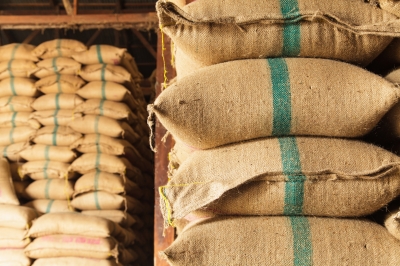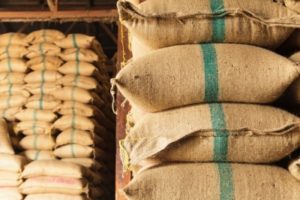

Philippine President Benigno Aquino III on May 23 signed into law a measure that declares large-scale agricultural smuggling as an act of economic sabotage that comes with greater sanctions.
Republic Act (RA) No. 10845 or The Anti-Agricultural Smuggling Act of 2016 seeks to “promote the productivity of the agriculture sector and to protect farmers from unscrupulous traders and importers, who by their illegal importation of agricultural products, especially rice, significantly affect the production, availability of supply and stability of prices, and the food security of the state.”
Higher sanctions on large-scale smuggling of agricultural products will be imposed “as a self-preservation measure to shield itself from the manipulative scheme of economic saboteurs, and to protect the livelihood of our farmers and to ensure their economic well-being.”
Under RA 10845, “we have a better shot at curbing the perennial problem of smuggling in the agriculture sector,” said Senator Cynthia Villar, the main sponsor of the measure’s Upper House version.
“Harsher penalties are now imposed to serve as deterrent to smuggling activities,” added Villar, who also chairs the Senate Committee on Agriculture and Food.
RA 10845 equates economic sabotage with large-scale agricultural smuggling of at least P1 million worth of sugar, corn, pork, poultry, garlic, onion, carrot, fish, and cruciferous vegetables which are in their raw state or have undergone simple preparation or preservation for the market. Smuggling of rice with a minimum amount of P10 million, as valued by the Bureau of Customs (BOC), is also considered an act of economic sabotage.
According to the law, large-scale smuggling is committed when these products are imported without an import permit from the regulatory agencies; when the import permits are used by persons, natural or juridical, that are not specifically named in the permit; and when fake, fictitious, or fraudulent import permits or shipping documents are used.
For the same covered agricultural products, selling, lending, leasing, or assigning of import permits, or consenting to or allowing the use of such permits of corporations, nongovernment organizations (NGOs), associations, cooperatives, or single proprietorships by other persons is considered large-scale smuggling.
Large-scale smuggling is carried out when entities misclassify, undervalue, or misdeclare in filing the import entry and revenue statement with the BOC in order to evade the payment of rightful taxes and duties due to the government; and when entities organize or use dummy corporations, NGOs, associations, cooperatives, or single proprietorships to acquire these import permits.
Transporting or storing of these agricultural products in whatever quantity, as well as acting as broker of the violating importer, is also considered a large-scale smuggling activity.
Violators of the new law face life imprisonment and a fine of twice the fair value of the smuggled agricultural product and the total amount of the taxes, duties and other charges avoided.
The penalty of imprisonment of not less than 17 years but not more than 20 years, and a fine of twice the fair value of the smuggled agricultural product and the aggregate amount of the taxes, duties and other charges avoided will be imposed on the officers of dummy corporations, NGOs, associations, cooperatives, or single proprietorships “who knowingly sell, lend, lease, assign, consent or allow the unauthorized use of their import permits for purposes of smuggling.”
Imprisonment of between 14 and 17 years and a fine equal to the fair value of the smuggled agricultural product and the aggregate amount of the taxes, duties and other charges avoided await a registered owner of a chartered boat, motorized commercial vessel of more than three gross tonnage (GT) and its lessee or charterer “who knowingly transports the agricultural product subject to economic sabotage, regardless of quantity.”
The same penalty will be imposed on the registered owner and its lessee of six-wheeler or bigger trucks, vans, and other means of transportation, and on the registered owner and lessee of a warehouse, or any property that knowingly store the smuggled agricultural product subject to economic sabotage.
A similar penalty awaits the registered owner, lessee, president, or chief executive officer of the private ports, fish ports, fish landing sites, resorts, and airports who knowingly allows the agricultural product to be smuggled into the country.
Imprisonment of 12 to 14 years and a fine equal to the fair value of the smuggled agricultural product and the aggregate amount of the taxes, duties and other charges avoided will be imposed on the registered owner and its lessee or charterer of a chartered boat, or motorized commercial vessel of 3 GT or less who knowingly transport these agricultural products regardless of quantity.
The same penalties will be imposed on the registered owner and its lessee of six-wheeler or smaller trucks, vans and other means of transportation who knowingly transports these agricultural products in any amount.
“In all cases, the smuggled agricultural products shall be confiscated and the property used in agricultural smuggling, consistent with Section 2530 of the Tariff and Customs Code and without prejudice to Section 2531 of the same Code, shall be forfeited in favor of the government,” the law stated.
When the offender is a juridical person, criminal liability will be assumed by its president, chief operating officer, or manager who consents to or knowingly tolerates the commission of the prohibited crime, it added.
Any person, natural or juridical, found guilty under the Anti-Agricultural Smuggling Act “shall also suffer the penalty of perpetual absolute disqualification to engage in any business involving importation.”
If the offender is an alien and the prescribed penalty is not life imprisonment, he or she will be deported after serving the sentence without undergoing further proceedings for deportation, the law said.
On the other hand, if the offender is a government official or employee, the penalty will be the maximum prescribed, and the offender meted an additional penalty of perpetual disqualification from public office, voting, and participating in any public election.
Under Section 5 of RA 10845, mere possession of rice or any agricultural product covered by the law, which has been the subject of smuggling, entered into the Philippines other than the BOC-controlled ports or without the necessary permits shall be prima facie evidence of smuggling.
BOC, in consultation with concerned agencies, shall promulgate the implementing rules and regulations of RA 10845 within 30 days upon its effectivity. – Roumina Pablo
Image courtesy of naypong at FreeDigitalPhotos.net




